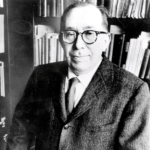 CfP: Political Philosophy and its History: Leo Strauss and Beyond
CfP: Political Philosophy and its History: Leo Strauss and Beyond
6-7 December 2017, KU Leuven
Leo Strauss is widely considered one of the most influential and controversial thinkers of 20th century. He is best known for providing insightful and challenging studies of several canonical thinkers in the history of political philosophy (Plato, Aristotle Machiavelli, Hobbes, Locke, Rousseau, Nietzsche etc.) but also for his illuminating analyses of less conventional thinkers that he included in the canon (Thucydides, Xenophon, Lucretius, Marsilius of Padua, Moses Maimonides, Al Farabi etc.). Strauss’ approach to the history of political philosophy is based on some assumptions that have been controversial: the idea that there is a ‘perennial’ dialogue among great philosophers, the querelle between classical and modern philosophy, the
relationship between esoteric and exoteric writing, the tension between reason and revelation. Reflecting on Strauss’ thought leads us to ask questions that are crucial for political philosophers: what is the relationship between political philosophy and its history? Is there a specific philosophical way to study the history of political ideas? What is the relevance of the theological-political problem in political philosophy and its history?
This call for papers aims to address these questions, welcoming papers that will explore the relationship between political philosophy and its history in Leo Strauss and/or alternative perspectives. Strauss’ methodology was developed in contrast to more ‘classical’ approaches to the history of political philosophy (for example Hegelianism, Marxism, Collingwood’s history of ideas, Nietzsche’s genealogies) and can be compared to other contemporary approaches to the history of political ideas. We accept papers from any period and discipline. Topics can include, but are not limited to:
- Strauss and classical theorists of philosophical history (Hegel, Marx, Collingwood, Heidegger, Nietzsche, Cassirer etc.)
- Strauss and his contemporary fellow philosophers (for example Arendt, Popper, Schmitt, Aron, Berlin, Gilson, Gadamer etc.)
- Comparisons between Strauss’ and other perspectives on the history of political ideas (hermeneutic, phenomenology, genealogy, post-structuralism, Begriffsgeschichte, Cambridge school)
- The relationship between reason and revelation in classical and modern political philosophers
- Comparisons between ancient/medieval and modern political philosophers
- Case-studies of esoteric-exoteric writing in the history of political philosophy
- The theological-political problem in political philosophy
- Questions such as: is there a specific philosophical way to do history of political philosophy? What is the relationship between political philosophy and its history?
This conference is organized by RIPPLE, the research political philosophy group at KU Leuven’s Institute of Philosophy. To submit a paper proposal, please email a short CV and abstract of no more than 500 words (along with affiliation) to strauss@kuleuven.be by 30 June 2017. Successful applicants will be notified by 20 July 2017.
The keynote speakers are Arthur Melzer (Michigan State University); Daniel Tanguay (University of Ottawa); David Janssens (Tilburg University).